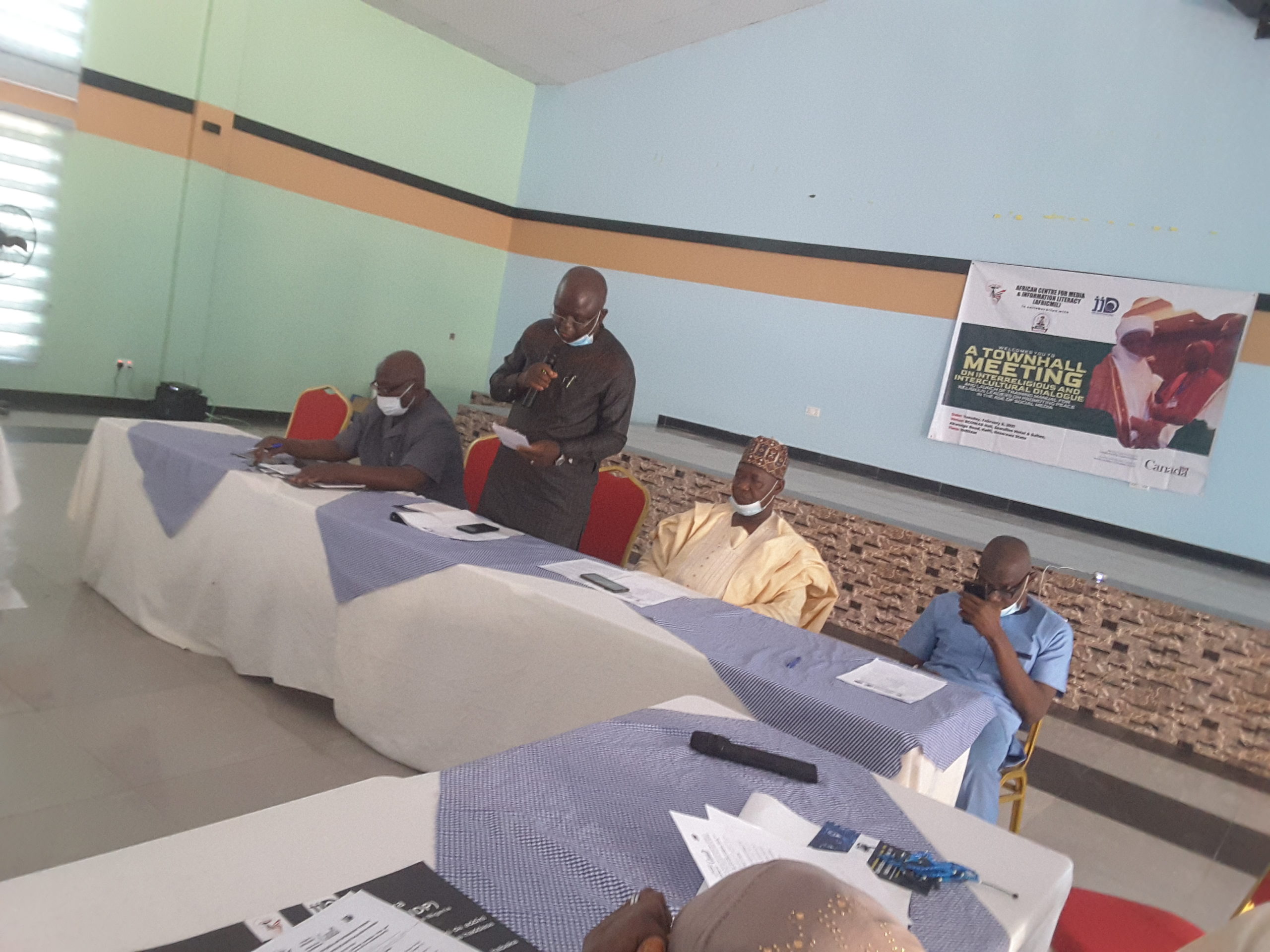By Doyin Ojosipe
Religious politics remains a notable cause of disaffection, social disintegration and countless blood letting in the country, religious leaders have said.
They urged Nigerians to be wary of politicians who pitch them against each other for political gains.
The clerics said this on Tuesday, February 9, 2021, in separate addresses at a town hall meeting on inter-religious and intercultural dialogue and the launch of a media and information literacy (MIL) training manual for religious leaders on promoting peace in the age of social media.
The meeting which held in Keffi, Nasarawa State, was organised by the African Centre for Media and Information Literacy (AFRICMIL), with the support of the Canada Fund for Local Initiatives (CFLI).
Speaking at the event, Dr Mohammad Ali, Chief Imam of Jumaat Mosque in Nasarawa State, said the desire to get more and take over other people’s wealth was responsible for the kind of politicians we have in the country.
He said the politicians would either go to church or mosque and or meet with adherents of a religion to seek loyalty, canvass for votes, after which they forget about the people.
“They just want to win the election, after winning, they don’t even bother about the church or the mosque nor their followers. They come under the guise of being a Muslim or Christian but never had genuine intentions,” he said.
In the same vein, Reverend Ogbonna Akuma, Chairman of Christian Association of Nigeria (CAN), Nasarawa North Senatorial Zone, said although politicians have hijacked religion for selfish reasons, there have been more clashes because of ignorance and lack of understanding of other religions.
He said, “As religious leaders, if we can go back and educate our people, it will go a long way to solving the problem.”
Addressing participants at the meeting, David Akoji, who represented the Director General of National Orientation Agency (NOA), Dr Garba Shehu, said religious leaders hold a sacred responsibility to promote peace in the society.
Akoji advised religious leaders to lend their voices against religious intolerance especially as they wield the power to influence their followers.
He commended AFRICMIL for the initiative, stating that his organisation was always ready to give its support.
AFRICMIL Coordinator, Dr Chido Onumah, said the town hall meeting was third in the series of town hall meetings on the CFLI inter-religious and intercultural dialogue project. The first two were held in Plateau and Kaduna States.
He said Nigeria was in need of such initiative in the midst of heightened social crisis in the age of social media.
Onumah noted that although the Nigerian society is greatly polarised along a variety of fault lines, none threatens the peace and stability of the country more than religion.
“The adherents of Christianity and Islam are endlessly battling for supremacy in all aspects of national life. Divisive and hate speeches are consistently delivered by preachers, and the faithful feel no restraint in physically carrying out the demands of these messages which are mostly extreme and, in some cases, violent,” he said.
He stated that the age of social media had complicated the issue of religious clashes and promoted hate speech and fake news as ignorant adherents make use of the media to provoke one another and stoke up needless tension among themselves.
In his words, “The potential for intense religious crises is even more obvious in this age of internet technology where websites, blogs and social media platforms are routinely deployed to disseminate all kinds of fake news and hate messages targeting other religions and cultures.”
Onumah said it is important for youths and religious leaders to be media and information literate to be able to recognize and respond to groups or individuals that are using the internet to promote stereotypes, preach religious extremism and promote violence.
According to him, “AFRICMIL has been working for many years with its partners in Nigeria and outside, to create awareness about the importance of Media and Information Literacy (MIL), and to promote the relevance of MIL as a catalyst for peaceful communication and a culture of dialogue, particularly on social networks.”



